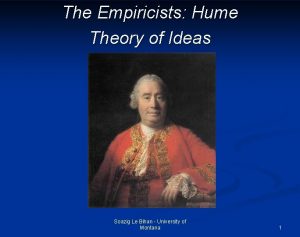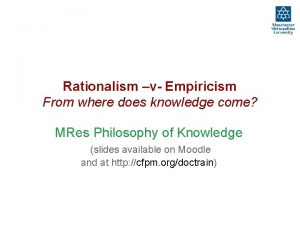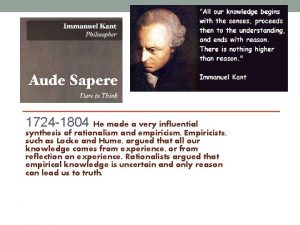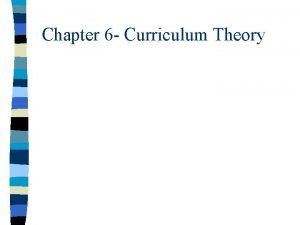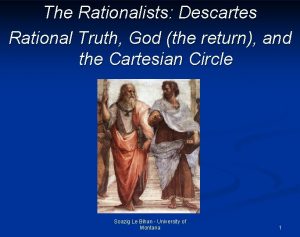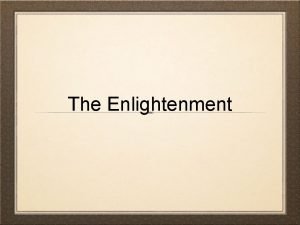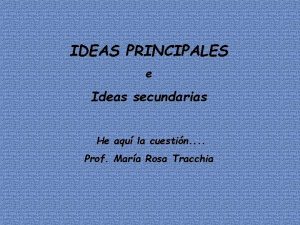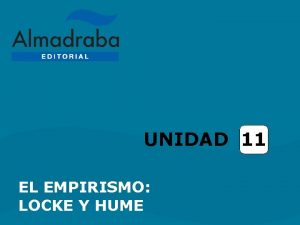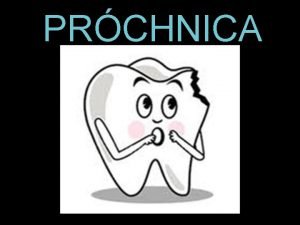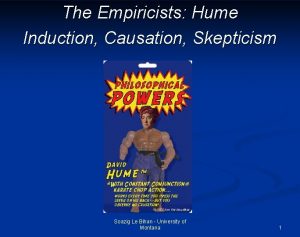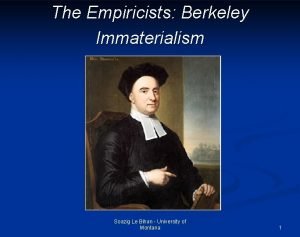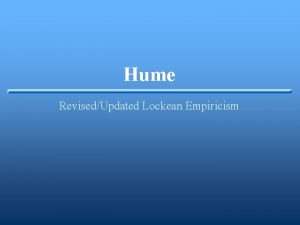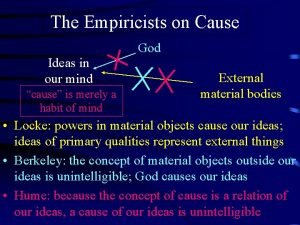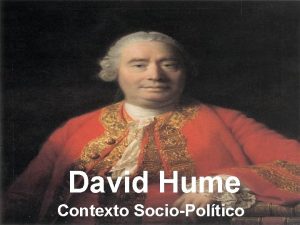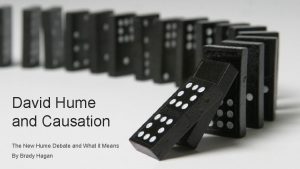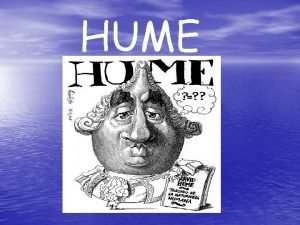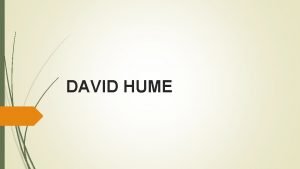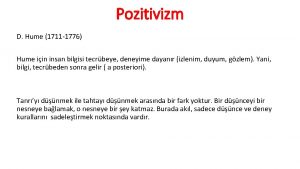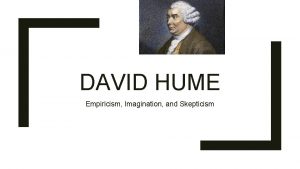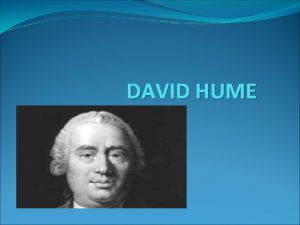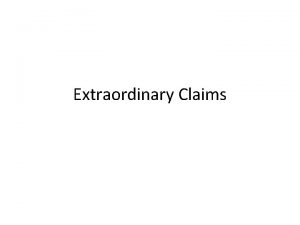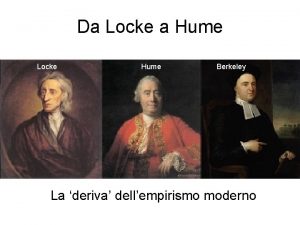The Empiricists Hume Theory of Ideas Soazig Le














- Slides: 14

The Empiricists: Hume Theory of Ideas Soazig Le Bihan - University of Montana 1

Outline 1. Introduction 2. Human Understanding 3. Knowledge 5. Conclusion Soazig Le Bihan - University of Montana 2

Introduction Hume Life: - (1711 -1776) – Calvinist family - Education and Projects “A new scene of thought” - Carrier Works: - Treatise of Human Nature - Enquiries Concerning Human Undersanding - Dialogues Concerning Natural Religion Soazig Le Bihan - University of Montana 3

Introduction Hume’s Philosophy Main components: - Empiricism vs Metaphysical Systems - Naturalism: Hume and Newton - Empiricism and Skepticism - Hume and Religion Hume is a committed to empiricism and naturalism (against speculative systems). He is intending to be the Newton of Philosophy and Morals. Soazig Le Bihan - University of Montana 4

Outline 1. Introduction 2. Human Understanding 3. Knowledge 5. Conclusion Soazig Le Bihan - University of Montana 5

Human Understanding Structure UNDERSTANDING IMPRESSIONS Sensation IDEAS Reflection Soazig Le Bihan - University of Montana 6

Human Understanding Two Laws Copy Principle: All ideas are resolved into simple ideas copied from a simple impression Argument: the blind man and the idea of color Association of ideas: - Resemblance - Contiguity - Cause and effect Natural and empirical laws of human nature. Soazig Le Bihan - University of Montana 7

Human Understanding The Copy Principle Applied to Philosophy Copy Principle: All ideas are resolved into simple ideas copied from a simple impression By the converse: Any idea which cannot be traced back to a set of simple ideas / copies of impressions is meaningless !! A radical way to solve many philosophical disputes! Soazig Le Bihan - University of Montana 8

Human Understanding The missing shade of blue Objection to the Copy Principle: The missing shade of blue Hume’s answer: “singular case” unsatisfactory A better Answer: - Mental paint mixing - Not for metaphysical ideas Soazig Le Bihan - University of Montana 9

Conclusion Hume’s theory of ideas (1) Impressions (2) Ideas : sensation and reflection (3) Copy Principle and its consequences Empiricism: all knowledge comes from experience Naturalism: empirical laws of nature But Skepticism: strict limits to our understanding Soazig Le Bihan - University of Montana 10

Outline 1. Introduction 2. Human Understanding 3. Knowledge 5. Conclusion Soazig Le Bihan - University of Montana 11

Human Understanding Structure KNOWLEDGE RELATIONS OF IDEAS - A priori - Opposite Contradiction `The sum of the angles …” MATTERS OF FACTS - A posteriori - Opposite conceivable `The sun will rise tomorrow’ Soazig Le Bihan - University of Montana 12

Human Understanding Laws of Reasoning Relations of ideas Thought alone – nothing can be shown to be false unless it implies contradiction Matters of facts - Observation - Memory - Reasoning in terms of causes and effects (dorms) What are the grounds of our causal reasoning? Soazig Le Bihan - University of Montana 13

Conclusion Hume’s theory of knowledge (1) Relations of ideas – a priori reasoning (2) Matters of facts – observation, memory and causal reasoning Laws of nature – grounds for true knowledge ? ? Soazig Le Bihan - University of Montana 14
 Soazig le bihan
Soazig le bihan Soazig le bihan
Soazig le bihan Soazig le bihan
Soazig le bihan Example of rationalism
Example of rationalism Baruch spinoza racionalismo
Baruch spinoza racionalismo Rationalists vs empiricists
Rationalists vs empiricists Conceptual empiricists curriculum
Conceptual empiricists curriculum Empiricism example
Empiricism example Hume main ideas
Hume main ideas Montesquieu pronunciation in french
Montesquieu pronunciation in french Ideas have consequences bad ideas have victims
Ideas have consequences bad ideas have victims Ideas secundarias
Ideas secundarias Hume contexto historico
Hume contexto historico Ek number question
Ek number question Ubytki wg blacka
Ubytki wg blacka

